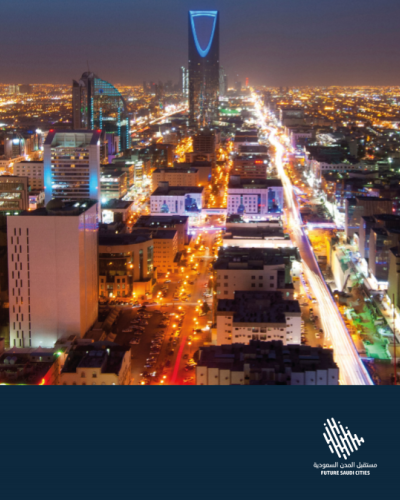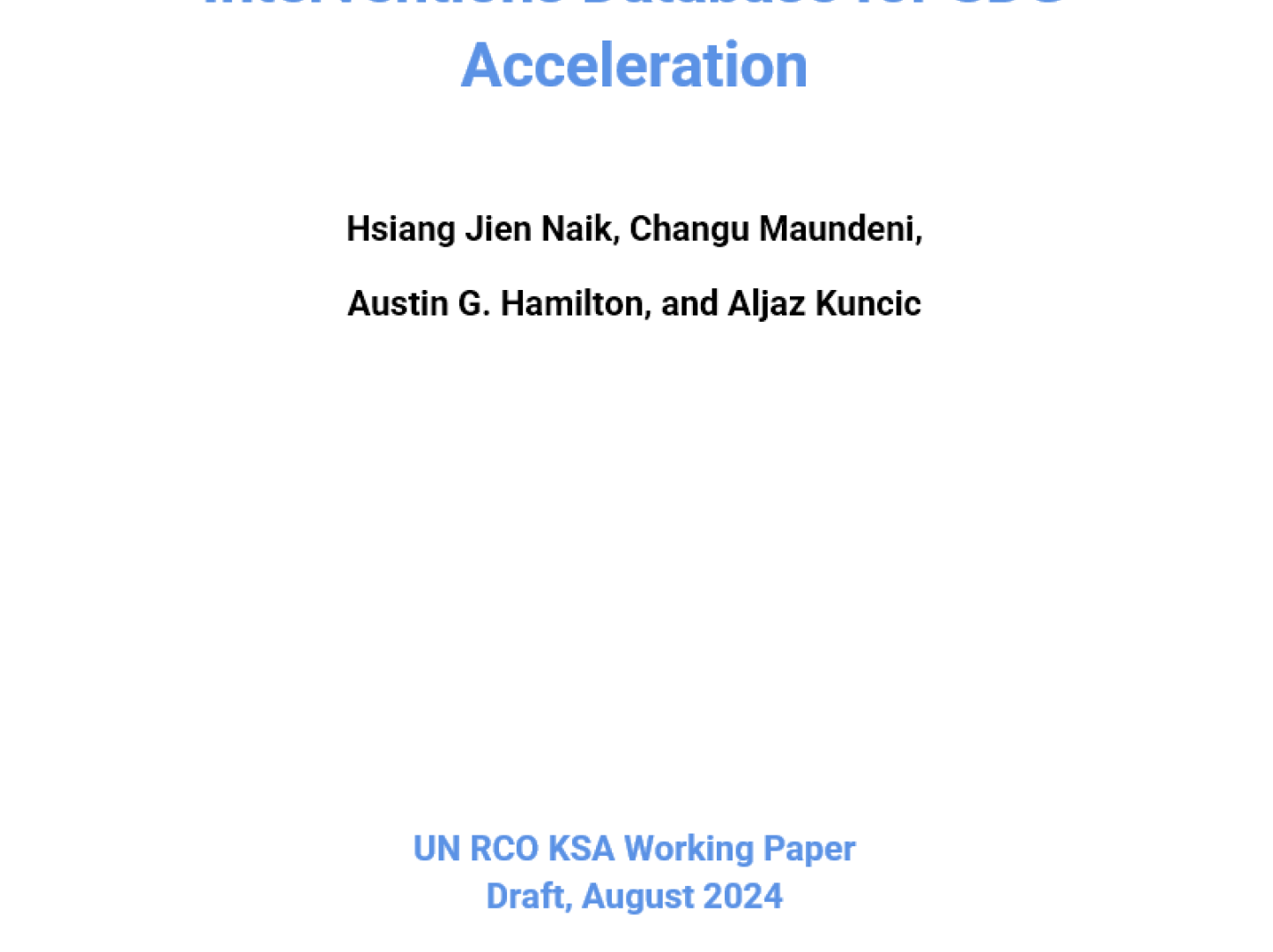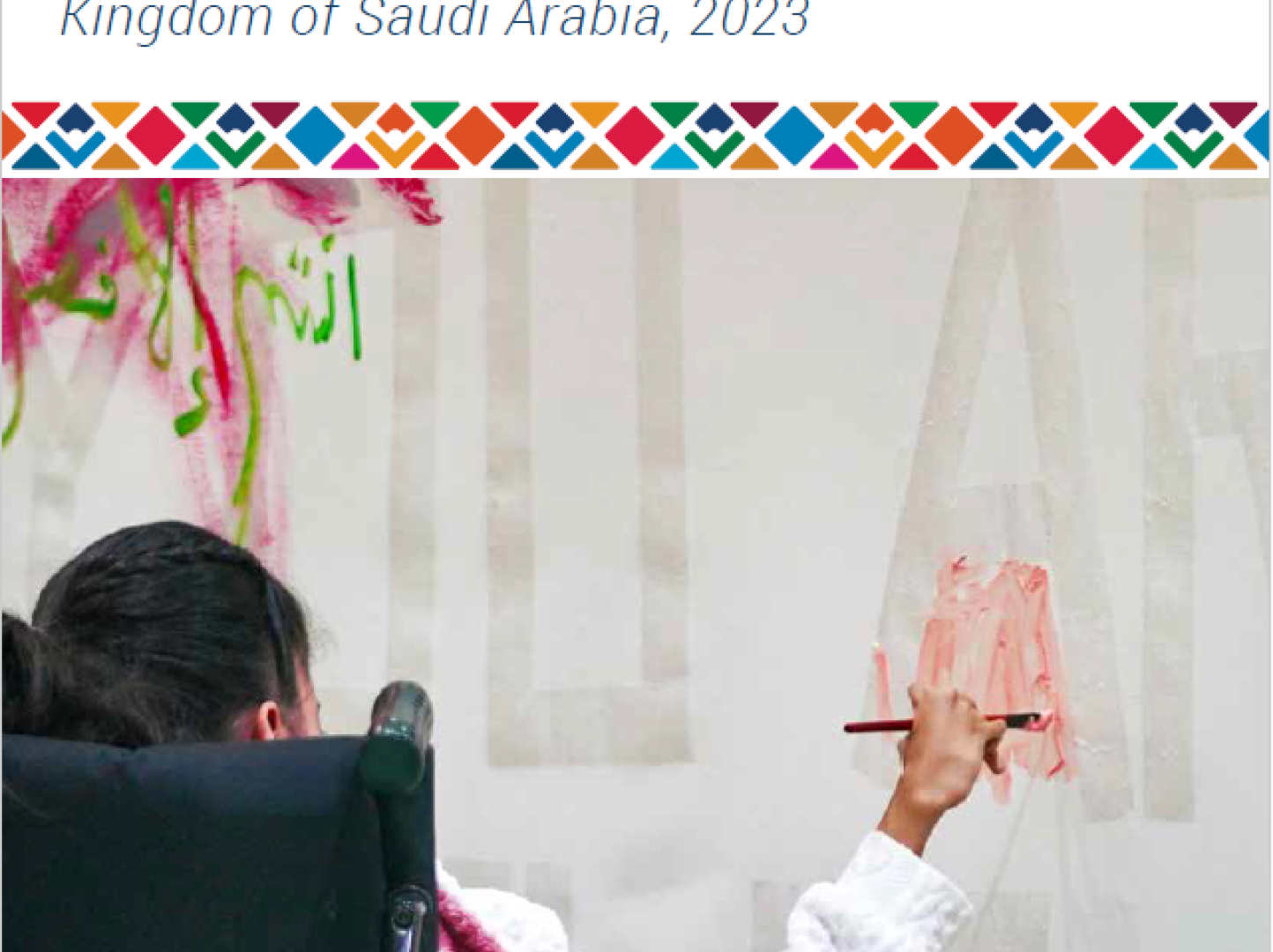Saudi Cities Report: Executive Summary

The Kingdom of Saudi Arabia is one of the most urbanized countries in the world with eight out of every ten people living in urban areas. When wellplanned and managed, urbanization can serve as a transformative force that can be leveraged for the sustainable and inclusive development of cities in Saudi Arabia. Over the last three decades, rapid urbanization, infrastructure development, and the transformation of the Saudi society have brought about remarkable improvement in the quality of life of Saudi citizens. Nonetheless, urbanization in Saudi Arabia faces several challenges and has been largely dependent on oil. There are significant regional and territorial imbalances, with some cities, especially the large ones better placed to take advantage of the positive nature of urbanization.
To address these and other urban challenges, the Kingdom issued a Royal Decree (No. 28119) in 2013 that seeks to implement the Future Saudi Cities Program through the Ministry of Municipal and Rural Affairs (MoMRA) in collaboration with UN-Habitat. The Future Saudi Cities Program seeks to achieve sustainable urban development in Saudi cities through effective planning and management, including the enhancing and support of economically productive cities, and improve urban legislation and institutional framework. This Program is fully in line with the 2030 Saudi Arabia’s vision and the Municipal Transformation Program of MoMRA, and it responds to the global urban development agenda that the Saudi Government has committed to implement.
This report shows with compelling evidence the current state of Saudi cities. It presents the key challenges that urban areas in Saudi Arabia contend with, as well as the opportunities they have in contributing to national and sustainable development. Saudi cities need to be more economically diversified and productive; it is also important to strengthen the institutional and legislative frameworks of Saudi cities as a basis of implementing a reinvigorated notion urban planning that can respond to current and emerging urban challenges in the Kingdom. This report provides clear recommendations in these critical areas.
The Kingdom of Saudi Arabia is determined to make qualitative and quantitative leaps in this regard, not sparing human and financial resources. The Government understands that this requires an inclusive approach involving every facet of the society, including civil society and community-based organizations. Working collaboratively, it will be possible to advance the national and international development agenda toward sustainable development. The implementation of the New Urban Agenda and the adequate response to SDGs— Goal 11 and other urban targets— is paramount to make Saudi cities and human settlements safe, inclusive, resilient and sustainable.
This report has benefitted from the collaborative effort of researchers, economists, environmental experts, urban planners and legal experts, all of them working closely with MoMRA, Government officials and other professionals. I commend these efforts that provide a solid base from which necessary institutional, legal and programmatic changes and adaptations can be undertaken to ensure that a prosperous future of Saudi cities is reality for all.




